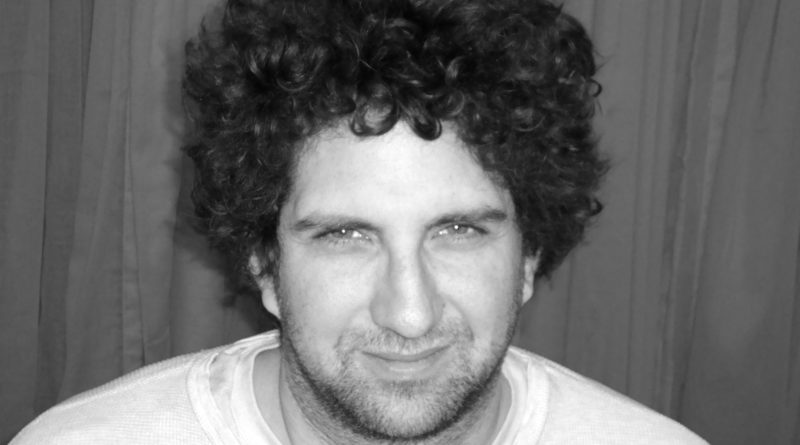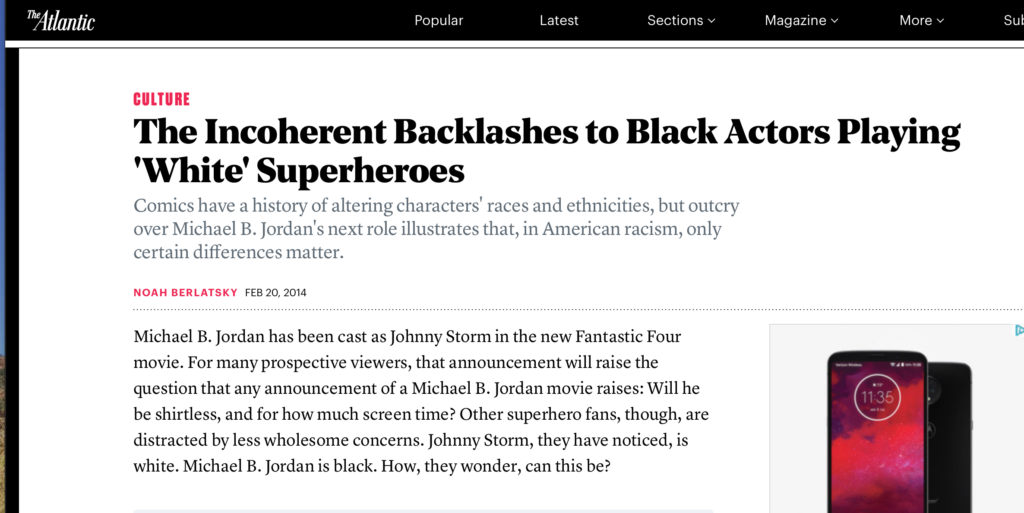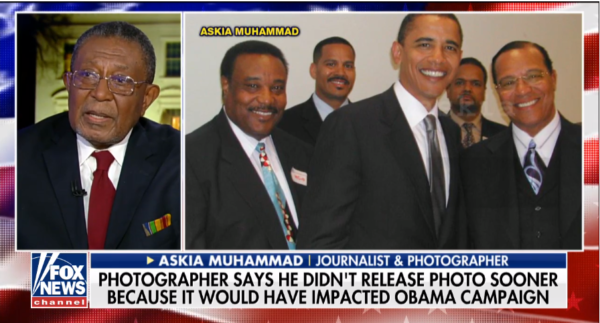________
Source: The Occidental Review
January 16, 2020 | by Andrew Joyce, Ph.D.
"The fiendlike skill we display in the invention of all manner of death-dealing engines, the vindictiveness with which we carry on our wars, and the misery and desolation that follow in their train, are enough of themselves to distinguish the white civilized man as the most ferocious animal on the face of the earth." Herman Melville, Typee, 1846
Inert in the face of mass migration, and entranced by the foreign policy objectives of hostile elites, today's "white civilized man" appear far removed from the ferocious animal perceived by Herman Melville. While still capable of inventing all manner of war machines, and retaining the ability to engage in vindictive and devastating conflicts, we seem uniquely incapable of doing any of it in our own interests. Instead, the "ferocious animal" of today is tame, on a leash, and obedient to obscure masters. One of the biggest problems for the Dissident Right, and perhaps the most serious, is the seeming collapse of White ethnocentrism in the second half of the twentieth century. The "liquid" nature of modernity, economic developments, the mass dissemination of guilt propaganda, the assault on the family, and, in some cases, the criminalization of aspects of White advocacy have all conspired to undermine, stigmatize, and destroy both national-cultural White identities (English, French, German etc.) and confluent "New World" White identities (American, Canadian, Australian etc.). These assaults from multiple angles have been so profound that by far the most prominent focus of Dissident Right activism has been to identify these external threats and then to attempt forms of rhetorical counter-attack. As such, the broad trajectory of pro-White literature, my own included, involves material on the hostility of Jews, globalism, neocon wars, Black crime, the mechanics of White guilt, and how we are censored or otherwise exiled from the mainstream.
Discussion of these subjects is absolutely essential, even if the argument could be made that we too often neglect the great White elephant in the room — the problem that both surrounds us and confounds us: the majority of Whites who simply fail to act in their interests, and even collaborate with outsiders against their ethnic interests. Probably no thinker in our circles has done more to move beyond neglect of ethnically pathological behaviors among Whites than Kevin MacDonald who, in a number of essays (e.g. see here, here and here) and his 2019 Individualism and the Western Liberal Tradition: Evolutionary Origins, History, and Prospects for the Future, has almost single-handedly attempted to improve our understanding of what's happening and to suggest possible remedies. With the election of Donald Trump, and the evolution of European populism, White identity and political interests are also coming into increasing prominence as academic and media talking points, the work of Matthew Goodwin and Eric Kaufmann being the most obvious examples. The methodologies of such studies involve group psychology, voting patterns, and economic analyses; their findings deserve careful study.
In the following essay, however, I propose a different way of looking at White ethnocentrism. Rather than turning a lens towards elections, the economy, group psychology, or the impacts of globalism, I want to do something quintessentially European — to turn the lens inwards. By examining the origins and nature of my own sense of ethnocentrism, I hope to understand more about the ethnocentrism, or lack of ethnocentrism, in other Whites. I do so in the understanding that my sense of ethnic identity might be radically different from others. In fact, I suspect that there is a multiplicity of ethnocentrisms at work among Europeans, each as unique as a fingerprint, and that this is one of the reasons for our predicament. Nevertheless, the following essay has been written in the hope that, even given the differences of White ethnocentrisms, something valuable might be learned, or that an interesting and productive debate might be started.
*****
I honestly can't remember a point at which I first regarded myself as possessing a heightened, or above average, ethnocentrism. I certainly can't recall instances before the age of 18 where I was not only conscious of being White, but proud of that fact and conceiving of myself as having interests as a White man. Looking back on my childhood, it's clear to me that I was raised in an overwhelmingly White environment, and ethnic outsiders, such as they existed in my world, were found almost exclusively on television or in the realm of pop music. In other words, I was raised in an environment where being White was simply the default state, and ethnics were merely presented at the fringes of that environment as something safe, entertaining, even attractive. One jarring exception to this state of affairs occurred in my late teens, when the 2001 Oldham Riots, and later riots in Bradford, Burnley, and Leeds, broke out in the north of England. These riots were explicitly racial in nature, and had been prompted to a large extent by an increase in violent crime by Pakistanis and other South Asians against Whites. The most savage, and most publicised, of these attacks was the assault of Walter Chamberlain, a 76-year-old war veteran who was so badly beaten by three Pakistanis on his way home from a rugby match that he required surgery to rebuild his face. He had walked through "their area."
The assault on Mr Chamberlain lit the match in the racial tinderbox, and Oldham erupted in mutual petrol bomb attacks, assaults, and arsons. It was through the blanket coverage of these race riots that I learned not only that there were growing ethnic enclaves throughout the West, but also that these brought in their wake "no-go areas," rampant crime, and vicious anti-White hostility. The riots in Oldham coincided with the fact I had begun to study politics at high school, part of which involved looking at race relations. In fact, just a few weeks prior to the Oldham Riots, I'd been asked to watch Mississippi Burning (1988), a crime thriller loosely based on the 1964 murder investigation concerning three civil rights workers (two Jews and a Black) by the Ku Klux Klan. Looking back on it from my current vantage point, the film is exceptional multicultural propaganda. It's extremely well-made from a technical standpoint, boasts tremendous acting talent in the form of Gene Hackman and Willem Dafoe, and is utterly relentless in demonising the population of the American South while eulogising Blacks. Nevertheless, if memory serves me right, it had only a middling effect on my opinion of race relations, and any embryonic feelings of White guilt were swiftly destroyed one afternoon by my first encounter with the face of Mr Chamberlain, adorning the front pages of multiple newspapers as I made my way to buy lunch.
Walter Chamberlain
I followed the Oldham Riots with great interest, and recall thinking of myself as White for the first time because of the violence. Looking back over some old news articles covering those events, it’s really stunning how open some Oldham residents were about the racial realities they were forced to live with. Take, for example, the following remark from the landlord of a local pub, the Fytton Arms: "The Asians make you racist. You're not brought up to hate them, they make you hate them." Another man told reporters: "They won't live like us. They won't work. I don'&t believe for a minute they can't get a job because they are discriminated against. They don't want jobs." On the assault on Walter Chamberlain, another added: "That's how sick and low they are, three lads knocking 10 bells out of an old bloke. What's he going to do back?" In retrospect, I believe the Oldham Riots woke up a lot of White people, both near the epicenter and far from it. The riots marked the beginning of what would eventually be a remarkable rise in support for the British National Party. For those of us further afield, even if we didn’t hate Asians, to paraphrase the landlord of the Fytton Arms, "we weren't brought up ethnocentric, but the Asians made us ethnocentric."
Once the riots were suppressed, the government invested millions in "race relations" measures designed to bribe the Asians and gag the Whites. The years since 2001 have witnessed endless official exhortations to "celebrate diversity" in the town, while clampdowns were announced “on anything which might be deemed offensive," including the flying of St. George’s flag. The town is still largely segregated, and an uneasy peace prevails. White ethnocentrism probably remains strong in Oldham but, for now, it's shackled and dormant. Reflecting back on those years, after the riots my own ethnocentrism entered a short period of dormancy until, prompted by a history class that required me to watch Schindler’s List (1993) — how strange the role films have played thus far!— I was sent down another, more convoluted, path to White ethnocentrism.
*****
Until doing a short high school course of study on the rise of National Socialist Germany, part of which required coursework on Schindler's List, my knowledge of Jews was limited to the highly philo-Semitic teachings of a Presbyterian Sunday school I attended between the ages of 5 and 10. It's quite a leap to go from purportedly heroic Israelites parting seas and surviving the dens of lions to yellow stars on clothing and, in the narrative I was given, mass death on an industrial scale. It was probably the sheer scale of this gap — the contradictory exposure to extremes of philosemitism and antisemitism — that sparked a greater than average curiosity about what exactly had happened in Europe between 1933 and 1945, and why. Truth be told, that same curiosity is still there, and I have to say that while readers sometimes write to me saying that my essays have helped them understand certain topics, the essays are primarily a method of improving my own understanding — a kind of "thinking on paper."
I started examining Jewish interactions with European populations, on a serious and advanced level, in my early 20s, around the same time I became a father. In terms of my own life history, these two events are connected in more senses than mere timing, since both contributed to heightened ethnocentrism. I found Ed Dutton's recent J. Philippe Rushton: A Life History Perspective (2018) fascinating not just because of the analysis of Rushton's work but what Dutton had to say about Rushton's early life, especially:
All the behaviors which Rushton has displayed—dropping out of school, marrying young, having a child young, having an affair—are predicted by low IQ. But he manifestly had a very high IQ, so, instead, these reflect a fast Life History Strategy, and specifically low Conscientiousness. Rushton was 'living for the now', following his impulses, with little regard for the future.Like Rushton, by my early 20s I exhibited behavior reflective of a fast Life History Strategy — I hadn't dropped out of school but had at times been very "disruptive." Despite excelling academically, I was frequently in fights and spent many hours in detention, I married young (20), and had a child young (age 21 to Rushton's 19). I never had an affair or touched drugs (or even alcohol), but I did "live for the now," following my impulses, with little regard for the future. Even now, I have a higher than average number of children (4), something more typical today of lower-IQ, risk-prone populations. And yet I also, like Rushton, continued my education alongside being a father, and graduated from university (also like Rushton) with First Class Honours, later proceeding (again like Rushton) to a PhD. In some ways, I regard my own experience of fatherhood as slowing my Life History Strategy, something I'm sure I'm not alone in experiencing.
For me, becoming a father wasn't just a fact of biology, but also something spiritual. I remember holding my first child for the first time, and hearing in my mind the final words of Dante’s Paradiso: "But my will now and my desire were turned, like a wheel rotated evenly, by a love that moves the sun and the other stars." This dramatic shift in my personality and sense of responsibility contributed in the longer term to a slower Life History Strategy, more conscientiousness (especially regarding my children), more caution, more deliberation on risk, and greater awareness not only of my own mortality but of the threat of death more generally. I became very protective, and began to be concerned with things like finding safe places to raise children, and safe people they could associate with. As they grew older, I became interested in what my children were being taught, and by whom. I began to think of myself, and my children, as part of a biological and spiritual continuum. Fatherhood had fathered a sense of ethnocentrism.
Please go to The Occidental Review to read the entire article.
________
Source: CrucibleMedia.TV
Jewish writer Noah Berlatsky NBC News diatribe is latest in anti-white hatred
January 7, 2019
Jewish freelance writer Noah Berlatsky has a history of racial oriented anti-Western, and most notably, anti-white sentiment in his commentaries on culture, entertainment, and politics. Berlatsky is a graduate of Oberlin College, Class of 1993, where he majored in History and Creative Writing. He also holds a Master's Degree in History from the University of Chicago, well known for producing a long academic stream of Cultural Bolsheviks. Berlatsky has a history of racial bias against Caucasians and has written extensively on feminist theory and the problems of “toxic masculinity” and the “over-representation” of white men in social institutions, pop culture, and entertainment.
In a 2014 piece in the Atlantic, Berlatsky laments the role of whites in ending slavery and excessive portrayal of "merciful" whites in Hollywood films about slavery (which he thinks there are not enough of).
Of course Berlatsky's graduate level education at the University of Chicago must have failed to educate him on the fact that hundreds of thousands of white Christian Americans sacrificed their lives to end slavery in the American Civil War. White guilt brings in subscribers, followers, clicks, and ad revenue therefore it is easy to understand why this piece would be popular with Social Justice Soviet media. Alarmingly centered in the picture is Daniel Day Lewis in his brilliant portrayal of President Abraham Lincoln. Berlatsky felt President Lincoln “flexes his cheeks in an excess of folksy, canny, oleaginous self-regard as Lincoln" and that
"Black people are oppressed by bad white people. They achieve freedom through the offices of good white people. Happy ending."Yes this is exactly what happened. White Christians fought and slaughtered one another to end slavery, hundreds of thousands of white Christian men died so blacks could be free…..slavery was ended through the blood of whites which almost dissolved the Union.
Berlatsky also cries foul over an imagined pop-culture fandom Neo-Nazi hysteria over black characters replacing iconic roles held for generations by whites in film, television, and comics.
Fans of comic books, television, and films are justified in expressing dismay over "remaking" and "re-imaging" iconic long-standing characters with blacks, LGBT, Asian or other "minorities." Mandating diversity by replacing iconic characters that traditionally were "white" robs blacks and other so-called minorities of creating their own unique cultural mythos and stories that should be passed down to generations. Little girls had Wonder Woman, Princess Leia, Supergirl, Lieutenant Uhura, Daisy Duke, Buffy the Vampire Slayer, Catwoman, and Batgirl to idolize.
Recasting females in traditionally male roles robs generations of girls of role models already waiting to be discovered. The same goes for African American heroes like Black Panther, Black Lightening, Lieutenant Uhura, and Shaft. "Reimagining" minorities in as iconic white characters deprives blacks, Asians, women, Hispanics from establishing their own mythos and creating their own stories and adventures.
James Bond is a white man. The Honeymooners were a traditionally Conservative white family. The Twilight Zone was a popular classic because it was hosted by the eccentric Rod Serling, a white male. That is not enough for this Cultural Bolshevik who surmises that the obvious reason there are not enough black superheroes, or Jewish ones, is because of racism.
For Berlatsky, a Social Justice Soviet endorsed by Twitter, and online media, racism is a growing phenomenon originating in white nationalist support of Donald Trump.
Once again a Social Justice Soviet falsely corroborates white nationalism and "Alt Right" counterculture as a social phenomenon solely empowered by the campaign and Presidency of Donald J. Trump. What Social Justice Soviets like Berlatsky fail to realize is that nationalist sentiment among Americans, and a long simmering white nationalist social movement arose from the hyper politically-correct and Socialist culture of Barack Obama following eight years of failed Globalist neo-conservative meddling in the American workplace and the Middle East. Never mind the fact that Barack Obama and his campaign networks frequented Black Nationalist circuits.
Please go to CrucibleMedia.TV to read the entire article.
________
This isn't funny so why are "whites" even laughing at this when they are being mocked?
Ali G Harvard Commencement Speech
America, Germany and France: targeted countries to demolish the "white" majority populations:
US-bound migrants cross into Mexico through river, hurl stones at military as soldiers block road (VIDEOS)
Germany's Forgotten Pensioners
Related:
ADL Launches Hostile Takeover Against Silicon Valley's Big 6
Achtung!: Nearly 50% of Germany's NewBorns are Not German (Excellent Educational Video)
Jewish humor
Why Trump Won't Do Anything About AT&T's H1-B Abuse






No comments:
Post a Comment
Note: Only a member of this blog may post a comment.